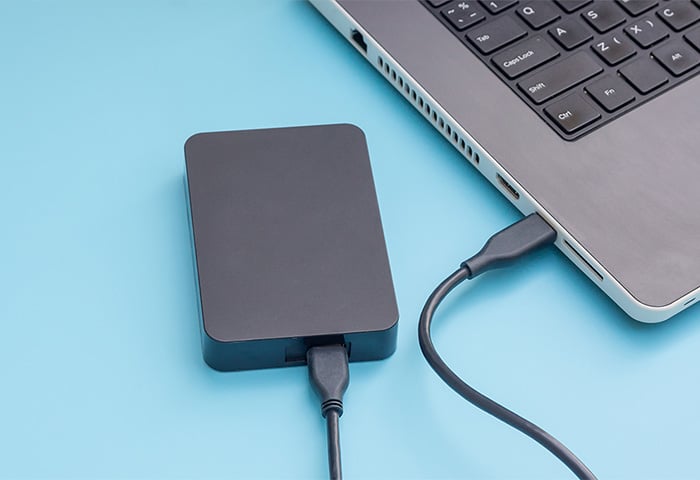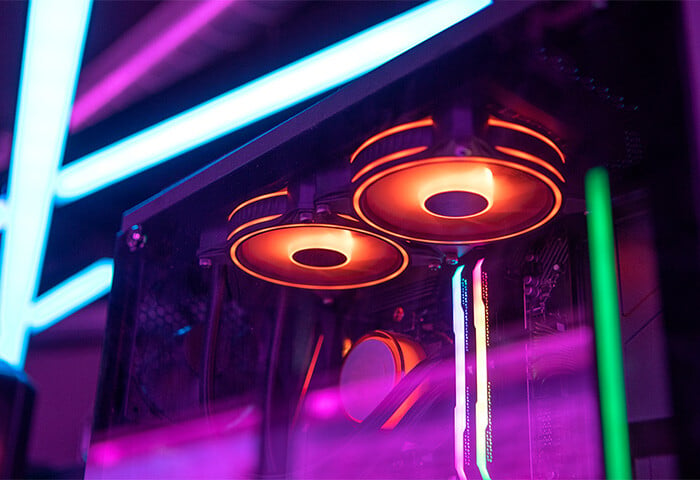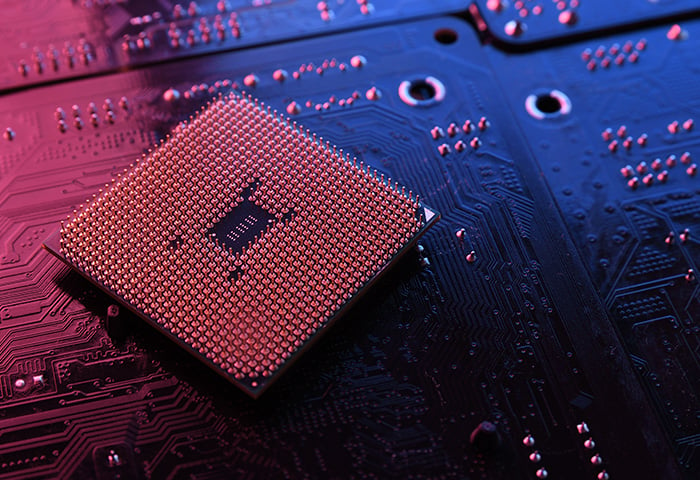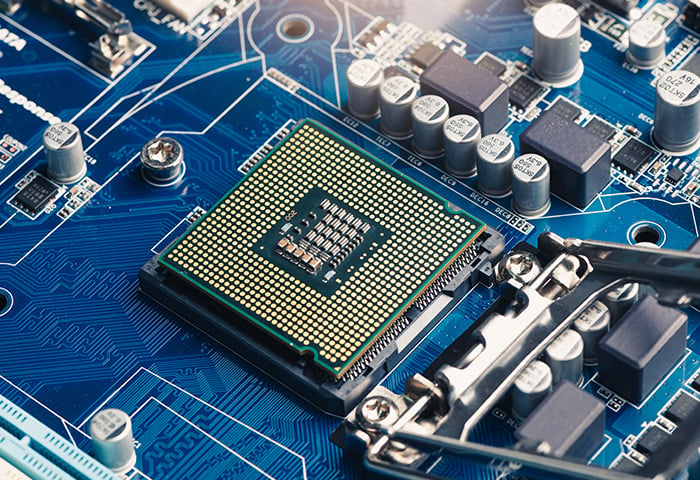What are the signs of hard drive failure?
The most common signs of a failing hard drive are an overheating computer, strange noises (like clicking or whirring sounds), and data or file corruption. Hard drive failure symptoms can quickly lead to major problems, so you should act immediately to save your files and prevent any data from being lost.
Just as when you’re sick, symptoms of hard drive failure can seem small before becoming a full-blown problem. Failing hard drive signs can be merely annoying at first, but if left unaddressed they can quickly destroy your Windows or Mac computer. Make sure you test your hard drive to locate the source of any problem.
Here are the most common hard drive failure signs:
-
Overheating
-
Strange sounds
-
Corrupted data, files, and folders
-
Major slowdowns
-
Stuck spindle motor
-
Frequent error messages
-
System crashes
-
Blue Screen of Death
-
Bad sectors preventing data access
-
Failure of the system to boot
Sluggishness, buggy apps, and other erratic behavior from your computer may not indicate your hard drive is failing. Learn how to fix 100% disk usage in Windows to see if your symptoms clear up. Or, check out our comprehensive guide to speeding up and cleaning up your PC to do a full inventory of what might be causing poor performance.
Disk fragmentation happens on hard disk drives too, so if you have an HDD try running a defrag tool, which will help with junkware removal (it’s like cleaning your hard drive’s closet). If your problems persist, your hard drive failure symptoms might be signaling real trouble.
It may be hard to tell if signs of a failing hard drive appear because of normal wear and tear — but if you wait, it might be too late. So if your system is signaling a bad hard drive, get it checked out right away by doing a S.M.A.R.T. hard drive test.
Testing your hard drive: What is a S.M.A.R.T. hard drive test?
A S.M.A.R.T. (Self-Monitoring, Analysis, and Reporting Technology) hard drive test monitors different aspects of your hard drive, analyzing the threat of hard drive failure and reporting the results. A S.M.A.R.T. hard drive test comes with most modern hard disk drives (HDDs), solid-state drives (SSDs), and eMMC drives (embedded MultiMediaCard drives).
A hard drive S.M.A.R.T. test — HDD S.M.A.R.T. test for short — can stop minor hard drive issues from snowballing into major problems. Do a S.M.A.R.T. HDD test on your drive regularly to keep tabs on it. And to ensure optimal performance, learn how to format your hard drive and start from scratch.
A S.M.A.R.T. HDD test warns you of imminent failure so you can prevent data loss and replace the hard disk drive in time. If you have a modern version of Windows, a S.M.A.R.T. HDD tester is built right in.
How to check if your hard drive is failing on Windows
Here’s how to check your hard drive health on Windows by doing an HDD test or S.M.A.R.T. test:
-
Type cmd or command into the taskbar search field and click Command Prompt to open the Command Prompt.

-
In the Command Prompt, type in wmic diskdrive get status and press Enter.

-
If the status reads OK, that means you’ve passed the Windows 10 hard drive test and your hard drive is healthy.
-
If the status reads Pred Fail, that means Windows has found at least one error on your hard drive, meaning your hard drive is unhealthy. But before you try to fix your hard drive, back up your files or clone your hard drive right away.
If your Windows test found an error, another Windows tool called CHKDSK might be able to resolve it. Check out our guide to learn how to use CHKDSK on Windows to fix your drive, and then do another S.M.A.R.T. test to see if your hard drive is healthy again. If not, it may be time to replace your hard drive.
That’s how to do a hard drive check on Windows 10. The hard drive diagnostic for Windows 10 is like having an in-house computer medic. Just like going for a checkup at your family doctor, periodically check your hard drive health to make sure everything runs smoothly.
How to check your Mac hard drive for failure symptoms
Strange whirring or humming, loud clicking noises, overheating, and file corruption are all common hard drive failure warning signs for Mac computers.
Here are the most common hard drive failure signs on Mac:
-
Strange whirring or clicking noises
-
Overheating
-
Freezing or stuttering
-
Sluggish performance
-
Files or folders disappearing
-
Files or folders inaccessible
-
Apps running erratically
-
Boot up failure
To test your Mac hard drive, run Mac’s Disk Utility tool, which has a built-in S.M.A.R.T. hard drive testing system.
Here’s how to run a S.M.A.R.T. hard drive test on Mac:
-
Open Applications, then open the Utilities folder. Click on Disk Utility.

-
Select the main disk on the left navigation panel, which should be the first selection at the top.

-
Under S.M.A.R.T. status, check your Mac’s hard drive status. Verified means your Mac hard disk drive is healthy. Failing means your hard drive is failing. In that case, back up your files immediately and consider replacing your hard drive.
Hard disk drives (HDDs) are just as vulnerable to failure on Macs as PCs. Check your HDD for errors periodically — if your Mac is still slow after checking the hard drive, clean up your Mac.
Free hard drive testing tools
A S.M.A.R.T. hard drive test will tell you if your hard drive is healthy or failing. But if you want a second opinion, you can use a free hard drive testing tool. Third-party hard drive testing tools offer a range of options for testing your hard drive.
Here are some of the best free hard drive testing tools:
Seagate SeaTools (Windows only)
Along with diagnosing your hard drive health, SeaTools by SeaGate can tell you your hard drive’s serial number, capacity, cache size, firmware status, and rotation rate. You can install SeaTools on a PC like any other program, and it’s compatible with most hard drive manufacturers. It’s a simple way to identify why your hard drive is failing.
GSmartControl
GSmartControl scans your hard drive for errors with S.M.A.R.T. and gives you information about your drive’s capabilities and attributes. It can also run an extended self-test, scanning the whole surface of your disk, running various test routines, and logging your hard drive’s performance in each area. GsmartControl can also automatically report any HDD anomalies.
HDDScan (Windows only)
Along with scanning your internal drive, HDDScan can S.M.A.R.T. scan any external drive attached to your computer, such as a USB or FireWire drive. HDDScan can also change parameters of the drive such as the AAM (automatic acoustic management) feature, which controls acoustic emissions and can make the drive less noisy. With HDDScan, you can also start and stop the hard drive’s spindle motor for maintenance purposes.
DiskCheckup (Windows only)
DiskCheckup from PassMark is a lightweight tool that uses the S.M.A.R.T. system to check for a bad drive and report other pertinent hard drive data. Along with giving your HDD a pass or fail score, HDDScan can tell you your hard drive “spin up time,” how many times it starts and stops, the number of hours it’s powered on, and the hard disk temperature. With these tools, you can locate the precise reason for your hdd failure.
Ariolic Disk Scanner (Windows only)
Ariolic Disk Scanner is a tiny tool that visualizes the parts of your hard drive that are bad and the files affected. Ariolic Disk Scanner can be used for any drive, even flash drives, micro SD cards, and CD or DVD disks. Ariolic is “read only,” so it scans your hard drive for errors without fear of harming your data.
Signs of hard drive failure can also indicate other computer issues, such as junk files or programs hogging your memory and processing power or not enough space on your hard drive.
AVG TuneUp will automatically scan your drive to let you know the status of your hard drive. And its built-in Automatic Maintenance feature will ensure your computer is always tuned up for optimal performance.
Top tip: back up your hard drive
The best way to prevent data loss from a failing hard drive is to back up your hard drive. And the easiest way to back up your hard drive is to copy it onto an external drive or use a cloud backup service.
To back up your hard drive to an external drive, plug in the external drive and turn on your computer — your operating system should identify the external drive. (External drives are available at any computer retailer.)
In Windows, go to Settings, select Backup, and choose the drive you want to make a backup on. Under Back up using File History, select the option to Add a drive and choose the external drive you just plugged in.

After selecting your backup drive, follow the prompts to back up your hard drive.
If you need to quickly back up your hard drive before it dies, you can also send your hard drive to the cloud. A cloud service lets you upload your hard drive to an external server at the click of a button. Using a cloud service isn’t free, but a failed hard drive can set you back years. Having a spare drive in the cloud will not only protect your data, it’ll also give you peace of mind.
Clean your hard drive automatically with AVG TuneUp
Like with any machine, regular maintenance on your hard drive will extend its lifespan. Our dedicated performance experts know how frustrating it can be to test and maintain your hard drive and troubleshoot failures.
That’s why we designed custom tuneup software to automatically keep junk out of your hard drive and ensure your computer runs smoothly all the time, without any data corruption.
AVG TuneUp features a built-in Disk Cleaner that scans your drive, identifying and clearing out any temporary files, junk programs, or duplicate files weighing you down. Keep your hard drive clean, your files safe, and your data intact.











/Signal-How-to-scan-and-fix-hard-drives-with-CHKDSK-in-Windows-Thumb.jpg)








